Mindfulness vs Meditation Retreat: How to Choose the Perfect Retreat for You
As someone who’s interested in mindfulness and meditation, I’ve learned a lot about the differences between these practices and the retreats that focus on them. Let me share what I’ve discovered to help you choose the perfect retreat for your needs.
Understanding Mindfulness and Meditation Retreats
Mindfulness and meditation are different but related practices. Mindfulness is about awareness of what’s happening around us and paying attention to our thoughts, beliefs, feelings, reactions, and how our bodies feel.
Meditation helps calm the mind by focusing on one thought or activity. I’ve noticed retreats becoming more popular as people realize the benefits of taking time away from daily life to focus on mental well-being.
Numerous studies show these practices can reduce stress, anxiety, and depression.
When choosing a retreat, it’s important to consider your personal goals and preferences. Think about what you hope to achieve – whether it’s reducing stress, gaining mental clarity, or starting a spiritual journey.
What are Meditation Retreats?
What are Meditation Retreats? Meditation retreats offer a chance to step away from life’s chaos and focus on inner peace. They’re designed to help you disconnect from distractions and dive deep into meditation practices.
During these retreats, participants often follow a structured schedule that includes guided meditation sessions, silent periods, and mindfulness exercises. This environment fosters a sense of tranquility and allows individuals to explore their inner selves without the usual interruptions of daily life. Many retreats also incorporate elements like yoga, nature walks, and healthy meals to support overall well-being.
Whether you’re a seasoned meditator or a beginner, meditation retreats provide a unique opportunity to deepen your practice and gain new insights. The immersive experience can lead to profound personal growth and renewed clarity and purpose.
A typical day at a meditation retreat might look like this:
-
5:00 AM – 8:00 AM: Meditation
- 8:00 AM: Breakfast
- 9:00 AM – 1:00 PM: Meditation
- 1:00 PM: Lunch
- 2:00 PM – 3:00 PM: Educational Talk
- 3:00 PM – 6:00 PM: Meditation
- 6:00 PM: Dinner
- 7:00 PM – 9:00 PM: Evening Meditation
Immersing yourself in a meditation retreat has many benefits. You’ll be in a distraction-free environment, which can boost your focus and deepen your practice.
Many experience reduced stress, lower anxiety, and a greater sense of calm.
Consciousness Calibrations
 According to ConsciousnessCalibrations.com MINDFULNESS calibrates at 590 on the Map of Spiritual Progress.
According to ConsciousnessCalibrations.com MINDFULNESS calibrates at 590 on the Map of Spiritual Progress.
Spiritual AWARENESS has a positive and constructive range of 200- 600.
MEDITATION also has a positive and constructive range, depending on the type of meditation. Here are some “high vibe” examples: Meditation for Self-Acceptance (320) or Loving Kindness Meditation (480-580)
Here’s a fun little factoid: There is a correlation between practicing meditation and increased income (350)
These are significant in consciousness and shouldn’t be too surprising.
To find out more about higher levels of consciousness, click here, and for lower levels of consciousness, click here.
DOWNLOAD The Map of Spiritual Progress.
AFFILIATE DISCLAIMER: The Gardener’s Gentle Reminder
In the sprawling garden of the internet, some of the seeds we plant are special. If you choose to water them (aka click on affiliate links and make a purchase), we might get a sprinkle of support in return. It helps us keep the garden lush and vibrant without any extra rain from your pocket! Rest assured, our green thumbs only point you towards products we truly believe could make your garden flourish, too.
What are Mindfulness Retreats?
Mindfulness retreats focus on being fully present in each moment. They often occur in beautiful natural settings to help you connect with your surroundings. At a mindfulness retreat, you might:
- Do mindful movements like yoga
- Eat meals in silence
- Take part in group discussions
- Enjoy periods of silence for self-reflection
I’ve found that mindfulness retreats can help reduce stress and anxiety. They can also improve emotional regulation, focus, and overall health. Plus, you get to connect with like-minded people, which can be rewarding.
About Craig Hamilton Co-Founder of EvolvingWisdom.com:

 Craig Hamilton is a spiritual trailblazer whose innovative transformation approach brings enlightenment down to earth and unlocks the codes to our highest human potential.
Craig Hamilton is a spiritual trailblazer whose innovative transformation approach brings enlightenment down to earth and unlocks the codes to our highest human potential.
With more than 16,000 graduates to date, his in-depth online meditation classes, workshops, and courses have transformed the lives of seekers in over 85 countries worldwide. These potent transformational how-to meditate training bring together core insights and approaches based on decades of on-the-ground research at the leading edge of spiritual practice and inquiry.
What Do You Do at a Mindfulness Retreat?
At a mindfulness retreat, the focus is on cultivating present-moment awareness and reconnecting with your surroundings.
These retreats are often held in serene locations, surrounded by nature, to enhance the experience of mindfulness.
Activities typically include:
- Guided meditation sessions,
- Mindful walking,
- Forest bathing which involves immersing yourself in the natural environment to heighten your senses and awareness, and
- Mindful eating which involves consuming meals slowly and deliberately, paying attention to the food’s taste, texture, and aroma.
In addition to these activities, mindfulness retreats often incorporate periods of silence to encourage self-reflection and deeper introspection.
This can be a powerful way to disconnect from daily life’s constant noise and distractions, allowing you to tune into your inner thoughts and feelings.
Group discussions and workshops may also be part of the schedule, providing opportunities to share experiences and learn from others. Overall, a mindfulness retreat offers a holistic approach to mental well-being, helping you develop skills that can be integrated into your everyday life
An Introduction to Insight Meditation
Discover the Path to Sustained Inner Peace
Join world-renowned teachers Sharon Salzberg and Joseph Goldstein in a FREE webinar to discover:
- How meditation can help you shift from stress and anxiety to genuine happiness and peace
- Why this type of meditation stands out as a timeless path to transformation and awakening
- Mindfulness and lovingkindness practices to get your meditation practice started today
Based on the Top Selling Online Course from Sounds True.
Key Differences Between Mindfulness and Meditation Retreats
While both types of retreats aim to improve well-being, they have different focuses.
Mindfulness retreats focus on developing awareness of the present moment and often include activities like mindful eating and walking.
Meditation retreats, on the other hand, emphasize concentration and deep introspection. They typically involve longer periods of sitting meditation.
The structure of these retreats also differs. Mindfulness retreats often have a variety of activities throughout the day, while meditation retreats usually follow a more rigorous schedule with lots of silent meditation.
Another key difference lies in the intended outcomes of each retreat.
Mindfulness retreats aim to cultivate a heightened awareness and presence in everyday life. Participants often leave with practical tools to integrate mindfulness into their daily routines.
Both types of retreats offer unique benefits, but the choice between them depends mainly on individual goals and preferences.
Many yoga-type or spiritual retreats offer mindfulness and meditation in their daily schedules.
Factors to Consider When Choosing a Retreat
When I’m looking at retreats, I consider several factors:
1. My personal goals or Sankalpa: What do I hope to achieve?
What Does Sankalpa Mean?
Sankalpa is a Sanskrit term in yogic philosophy that refers to a heartfelt desire, a solemn vow, an intention, or a resolve to do something. It is similar to the English concept of a resolution, except that it comes from even deeper within and tends to be an affirmation.
This term comes from the Sanskrit roots san, meaning “a connection with the highest truth,” and kalpa, meaning “vow.” Thus, it translates to denote an affirming resolve to do something or achieve something spiritual.
Oftentimes, yoga practice can help an individual uncover and cultivate their own sankalpa in order to achieve enlightenment.
2. My experience level: Am I a beginner or more advanced?
3. Location: Do I want to stay close to home or travel somewhere new? Do I prefer being steeped in nature in the mountains, near a lake, or on the ocean?
4. Duration: How long can I commit to a retreat? Do I just want to dip my toes into a long weekend retreat or an immersive 14-day get-a-way in India, Thailand or Bali?
5. Cost: What’s my budget?
The price range for mindfulness meditation retreats can vary significantly.
Programs can cost less than $100 a day (at your local yoga studio) or more than $22,000, depending on the type of accommodations, length of the retreat, activities offered, and whether food is included.
Retreats can last from a single day to several months, with shorter retreats ranging from a weekend to a week being more common.
For example, classic Vipassana (silent) retreats traditionally last 10 days but can be as short as 3 days. It’s essential to consider both the cost and duration when planning your retreat to ensure it fits within your budget and schedule.
Find a retreat that meets your needs and circumstances. Before making a decision, take time to research and reflect on your goals.
Top Destinations for Mindfulness and Meditation Retreats
I’ve found some impressive “bucket list” retreat destinations worldwide…
#1

Tibet: Deep-rooted Buddhist culture and breathtaking landscapes.
With its deep-rooted Buddhist culture, Tibet offers an unparalleled environment for mindfulness meditation retreats. The region is home to numerous ancient monasteries, where centuries-old meditation and mindfulness practices have been preserved and passed down through generations. The serene and breathtaking landscapes, from the towering Himalayas to the peaceful valleys, provide the perfect backdrop for cultivating inner peace and mindfulness. Furthermore, the high altitude and crisp, clean air can enhance the meditative experience, helping practitioners achieve deeper awareness and tranquility. Engaging with local monks and spiritual leaders can also provide invaluable insights and guidance, enriching the mindfulness journey.
#2
Thailand: Serene temples and lush tropical surroundings.
Thailand, renowned for its serene temples and lush tropical surroundings, offers a diverse array of experiences for travelers. The country’s temples, such as Wat Arun and Wat Phra Kaew in Bangkok, showcase intricate architectural details and deep historical significance, providing a glimpse into Thailand’s rich Buddhist heritage. Beyond its cultural landmarks, Thailand boasts pristine beaches with crystal-clear waters, particularly on islands like Phuket and Koh Samui, making it a haven for relaxation and water activities. The lush landscapes of the north, including the mountainous regions around Chiang Mai and Chiang Rai, offer opportunities for trekking, exploring rainforests, and engaging with indigenous hill tribes, thus presenting a holistic view of Thailand’s natural beauty and cultural diversity.
Explore mindfulness meditation retreats in Thailand here.
#3
Bali: Bali, and specifically Ubud, is renowned for its spirituality and array of mindfulness retreats.
Ubud is home to numerous retreat centers that offer a rich selection of meditation and yoga programs, often combined with traditional Balinese healing practices and mindfulness workshops.
Nestled in the lush greenery of rice paddies and tropical forests, Ubud provides a serene and exotic backdrop that fosters deep introspection and relaxation. The tranquil environment and Bali’s cultural richness enhance the overall experience, making it a prime destination for those looking to practice mindfulness in an idyllic setting.
Explore mindfulness meditation retreats in Thailand here.
#4
India: The birthplace of many meditation techniques.
India, with its rich philosophical and spiritual heritage, is the birthplace of many profound meditation techniques such as Vipassana, Transcendental Meditation, and Yoga Nidra. Vipassana, also known as insight meditation, traces its roots back to the teachings of the Buddha over 2,500 years ago and focuses on self-observation and introspection. Transcendental Meditation, popularized in the mid-20th century by Maharishi Mahesh Yogi, employs the use of mantras to transcend ordinary thought and achieve a state of deep, restful consciousness. Yoga Nidra, often referred to as yogic sleep, involves guided relaxation techniques to induce a meditative state between wakefulness and sleep. These diverse traditions underline India’s significant influence on the global meditation landscape, offering a myriad of paths for individuals seeking inner peace and self-realization.
Explore mindfulness meditation retreats in India here.
#5
Greece: Stunning natural beauty and historical roots.
With its breathtaking landscapes, Greece offers a tapestry of experiences from the sun-drenched beaches of the Cyclades to the rugged mountains of the mainland. Its history is profoundly deep, with ancient ruins like the Parthenon in Athens and the Palace of Knossos in Crete providing a glimpse into early civilization and mythological tales. The rich cultural heritage is evident in its archeological sites and vibrant traditions, cuisine, and festivals. The warm Mediterranean climate makes it an inviting destination year-round, ideal for exploring its diverse islands and coastline.
Explore mindfulness meditation retreats in Greece here.
#6
Spain: Sunny weather, scenic landscapes, and delicious food.
Spain offers a rich tapestry of cultural experiences that go beyond its sunny weather, scenic landscapes, and delicious food. The country is renowned for its architectural marvels, such as the Sagrada Familia in Barcelona and the Alhambra in Granada, which showcase Spain’s diverse historical influences from Roman to Moorish to Gothic. Additionally, Spain’s vibrant festivals like La Tomatina and Running of the Bulls provide unique insights into the local traditions and community spirit. The nation’s diverse regions, from the Basque Country to Catalonia, offer distinct languages, customs, and culinary specialties, making Spain a mosaic of cultures within a single country. Lastly, Spain’s extensive coastline, along both the Mediterranean Sea and the Atlantic Ocean, provides countless opportunities for beach activities, water sports, and coastal exploration.
Explore mindfulness meditation retreats in Spain here.
#7
USA: Numerous well-regarded meditation centers from coast to coast.
The setting of your retreat can impact your experience. Nature-based retreats can be especially rejuvenating.
In the United States, meditation retreats often cater to a wide array of preferences, ranging from silent retreats to more interactive, guided experiences. The diversity in geographical settings, from the serene beaches of California to the tranquil forests of the New England, provides a rich backdrop that can enhance the overall meditative experience. For instance, the Omega Institute in New York offers a variety of mindfulness workshops. At the same time, the Spirit Rock Meditation Center in Northern California is renowned for its Vipassana retreats set against a backdrop of rolling hills. Additionally, some centers, like the Shambhala Mountain Center in Colorado, combine meditation practices with outdoor activities, such as hiking, to help participants achieve a deeper connection with nature. This variety ensures a meditation retreat is suitable for virtually anyone looking to deepen their practice and find inner peace.
Explore mindfulness meditation retreats in the United States here.
Top 5 Best International Meditation Retreats in the World
When considering the top mindfulness meditation retreats in the world, it is essential to evaluate locations based on their reputation among practitioners, the quality of their programs, and the serenity of their settings. Below are five such retreats that have consistently received high praise for their mindfulness meditation offerings:
 Plum Village, France:
Plum Village, France:
- Location: Southern France, near Bordeaux.
- Description: Thich Nhat Hanh founded Plum Village, a globally respected mindfulness practice center. It offers a range of programs incorporating sitting and walking meditation, mindful eating, and deep relaxation.
- Atmosphere: The center’s serene countryside enhances the mindfulness experience, providing a tranquil environment for personal reflection and growth.
- Gaia House, UK:
- Location: Devon, England.
- Description: This silent retreat center specializes in mindfulness meditation and offers a variety of retreats led by experienced teachers. Gaia House is known for its supportive community and emphasis on mindful awareness.
- Atmosphere: The peaceful rural setting in the Devon countryside creates an ideal backdrop for silent contemplation and deep meditation practice.
-
Tushita Meditation Centre, India:
- Location: Dharamshala, Himachal Pradesh.
- Description: Tushita is a renowned center for studying and practicing Tibetan Buddhism. It offers structured meditation and study retreats in the serene foothills of the Himalayas.
- Atmosphere: Dharamshala’s peaceful location, combined with its spiritual ambiance, provides an enriching environment for meditation and introspection.
- Bodhi Zendo, India:
- Location: Kodaikanal, Tamil Nadu.
- Description: Bodhi Zendo is a Zen training center that offers meditation retreats following the Soto Zen tradition. The center emphasizes Zazen (seated meditation) and mindful living.
- Atmosphere: Situated in the lush greenery of the mountains, it offers a peaceful retreat from the hustle and bustle of daily life.
- Wat Suan Mokkh, Thailand:
- Location: Chaiya, Surat Thani Province.
- Description: Wat Suan Mokkh (The Garden of Liberation) is a Buddhist monastery offering 10-day silent meditation retreats focusing on Anapanasati (mindfulness of breathing) and Vipassana meditation.
- Atmosphere: The natural setting and minimalist facilities foster simplicity and deep mindfulness practice.
These international retreats stand out for their dedication to mindfulness and meditation. They offer participants comprehensive programs under the guidance of experienced teachers in serene, often picturesque surroundings. When selecting a retreat, consider your personal goals, the specific meditation practices offered, and the overall environment to ensure a fit that supports your mindfulness journey.
Explore mindfulness meditation retreats worldwide here.
Explore Professional Tools for Meditation Instructors from PositivePsychology.com
Some of the Best Mindfulness Meditation Retreats in the United States
Embarking on a mindfulness meditation retreat can be a transformative experience. It offers a unique opportunity to disconnect from the hustle and bustle of daily life and reconnect with your inner self. Whether you’re a seasoned meditator or just beginning your journey, the United States offers a variety of top-rated retreats that cater to different needs and preferences.
#1
Float & Flow Yoga & SUP, Hawaii
Location: Hawaii
Overview: This retreat combines yoga, stand-up paddleboarding (SUP), and meditation sessions, providing a holistic approach to wellness. The serene Hawaiian landscape adds an extra layer of tranquility to your practice.
Explore mindfulness meditation retreats in Hawaii here.
#2
Prama Institute, North Carolina
Location: North Carolina
Overview: Nestled in the Blue Ridge Mountains, Prama Institute offers a peaceful setting for deep meditation and reflection. Their programs include yoga, meditation, and workshops on holistic living.
Explore mindfulness meditation retreats in North Carolina here.
#3
Path of Bliss, New York
Location: New York
Overview: Located in the scenic Catskills, Path of Bliss provides a nurturing environment for both beginners and advanced practitioners. The retreat focuses on mindfulness meditation and offers various workshops to enhance your practice.
Explore mindfulness meditation retreats in Upstate New York here.
#4
Retreats and More Sedona, Arizona
Location: Arizona
Overview: Sedona is a spiritual haven known for its stunning red rock formations. This retreat offers guided meditations, yoga classes, and nature hikes, making it an ideal choice for those looking to combine outdoor activities with their mindfulness practice.
Explore mindfulness meditation retreats in Arizona here.
#5
Insight Meditation Society (IMS), USA:
Location: Barre, Massachusetts
Overview: Founded by meditation teachers Joseph Goldstein, Sharon Salzberg, and Jack Kornfield, IMS is a prominent mindfulness meditation center in Barre, Massachusetts. IMS offers a range of silent retreats focusing on Vipassana and Metta (loving-kindness) practices. The peaceful forest setting provides an ideal backdrop for intensive mindfulness training.
Explore mindfulness meditation retreats in Massachusetts here.
When choosing a meditation retreat, consider location, cost, type of classes, and additional activities. Whether you prefer a luxurious setting with all the amenities or a more rustic experience close to nature, a retreat will meet your needs.
For more information on these retreats and to book your spot, visit the respective websites or check out comprehensive reviews on platforms like BookYogaRetreats.com and BookMeditationRetreats.com.
Meditation Retreats for Beginners
A mindfulness retreat can be an excellent way to start your journey into mindfulness practices. These retreats are designed to gently introduce you to the principles of mindfulness in a supportive and serene environment. At a mindfulness retreat for beginners, you can expect a mix of guided meditation sessions, mindful walking, and periods of silence to help you cultivate present-moment awareness. The structured schedule often includes time for self-reflection, group discussions, and workshops that provide practical tools for integrating mindfulness into your daily life.
One key benefit of attending a mindfulness retreat as a beginner is the opportunity to disconnect from the distractions of everyday life and immerse yourself in nature.
Many retreats are held in beautiful, tranquil settings that enhance the experience of mindfulness.
Forest bathing and mindful eating allow you to engage all your senses and deepen your connection with the natural world. This holistic approach reduces stress and anxiety and fosters a greater appreciation for the simple joys of life.
Additionally, mindfulness retreats for beginners often emphasize the importance of community and shared experiences. You’ll have the chance to meet like-minded individuals who are also new to mindfulness, creating a sense of camaraderie and mutual support.
The retreat leaders, usually experienced practitioners, provide gentle guidance and encouragement, making it easier for you to navigate any challenges that arise during the retreat.
By the end of the retreat, you’ll likely feel more grounded, centered, and equipped with valuable mindfulness techniques that you can continue to practice at home.
What to Expect During a Retreat

Photo by Anna Shvets
At most retreats, you’ll follow a structured daily schedule. This might include early morning meditations, mindful movement, group discussions, and periods of silence. There are usually some common rules to follow:
- Periods of silence
- No electronics
- Mindful eating
- Sticking to the schedule
While retreats can be challenging at times, they’re also incredibly rewarding. You might face some emotional vulnerability or physical discomfort, but you’ll likely gain profound insights and improved mindfulness.
Explore More Ways to Prepare Yourself for a Spiritual Retreat
Get to know related topics and fuel your passion for the mindful yogic way. Learn more about spirituality and the yogic lifestyle with bestselling courses taught by world-renowned teachers.
Preparing for Your Chosen Retreat
Before your retreat, preparing mentally and physically is a good idea. I like to start a regular meditation practice a few weeks before. It’s also helpful to stay active, get enough sleep, and eat well. When packing, I bring:
- Comfortable clothes
- A journal and pen
- A small backpack
- A lap blanket or shawl
- Comfortable shoes
- A watch
I leave behind electronics and other distractions. Setting intentions for your retreat can really enhance your experience. I like to start each day by affirming my goals and staying open to the day’s experiences.
The Impact of Retreats on Well-being
Research shows that mindfulness and meditation retreats can significantly benefit mental health. They can reduce stress and anxiety, lower blood pressure, and improve sleep quality. I’ve found that the effects of a retreat often last long after I return home.
Many people report increased mindfulness and reduced stress weeks after attending a retreat.
While vacations are great for relaxation, retreats offer deeper, more lasting benefits. They provide tools and techniques for maintaining emotional balance and handling stress in daily life.
One of the most profound aspects of these retreats is the sense of community they foster. Being surrounded by like-minded individuals on a journey towards better mental health creates a supportive environment that enhances the overall experience.
The shared practices and group activities deepen one’s understanding of mindfulness and build connections that can last a lifetime.
Traditional vacations often lack this sense of belonging and mutual support, making retreats a unique and enriching experience.
Final Verdict: Choosing the Perfect Retreat for You
Choosing between mindfulness and a meditation retreat comes down to your personal goals and preferences:
- Ask yourself what you hope to get out of the experience.
- Consider your experience level, preferred location and duration, and budget.
- Remember, there’s no “perfect” retreat – just the one that’s right for you now.
- Trust your instincts and choose a retreat that resonates with you.
Whether you’re looking to deepen your meditation practice, cultivate everyday mindfulness, or simply take a break from the chaos of daily life, there’s a retreat out there for you.
Happy retreat planning! 🌟
Explore many mindfulness, meditation, yoga, and spiritual retreats at BookMeditationRetreats, Book Mindfulness Retreats, BookYogaRetreats.com, BookYogaTeacherTraining.com.
Suggested Reading & Resources
FREE Resources:
- Craig Hamilton’s FREE E-book: The 5 Meditation Mistakes We Are All Making
- Craig Hamilton’s FREE Webinar: How to Meditate 2.0: The Meditation Game Change
- Introduction to Insight Meditation: Discover the Path to Sustained Inner Peace with Sharon Salzberg and Joseph Goldstein
- Join Jon Kabbat Zinn in: “Why Mindfulness Matters—and Why It Might Matter to You!”
- Discover the Art of Living Joyfully. Join world-renowned spiritual leaders His Holiness the Dalai Lama and Archbishop Desmond Tutu for a FREE three-part teaching series
- A Mindful and Kind Approach to Quieting Your Mind: Bring Awareness and Self-Compassion to Your Inner Dialog. This free series includes four videos from the much-beloved and deeply regarded teachers of the newly enhanced Power of Awareness course: Devin Berry, Tara Brach, Jack Kornfield, and Konda Mason. Each video will bring you closer to recognizing your trained thought patterns as often counterproductive and teach you how to rise above them.
- Discover a Super Yummy Guided Meditation
- Power of the Mind: A Dangerous Place or a Great Gift? with NY Times Bestselling Author Michael Singer
Suggested Reading:
- Become a Master of Mindfulness
- Unveiling the Transformative Power of Centering Prayer: Book Review of ‘Intimacy with God’”
- Discover Copper Healing Pyramids for Meditation
- Introduction to Insight Meditation (aka Vipassana Meditation)
- Discover Mindfulness Meditation Certification Online
- How to Become a Meditation Teacher
- Do You Struggle with Meditation? What If It Could Be Easier? Interview with Kelly Locke
- 8 Powerful Mindfulness Exercises to Reduce Stress
Retreat-Related Resources:
- Mindfulness Meditation Retreats: How to Choose Your Next Mindful Escape
- How to Choose a Yoga Retreat: Mindful Travel Guidance
- Mindful Travel Guidance: Discover the Benefits of Travel as a Spiritual Practice
- Explore Top 10 International Yoga Retreat Destinations to Nurture Your Inner Yogi

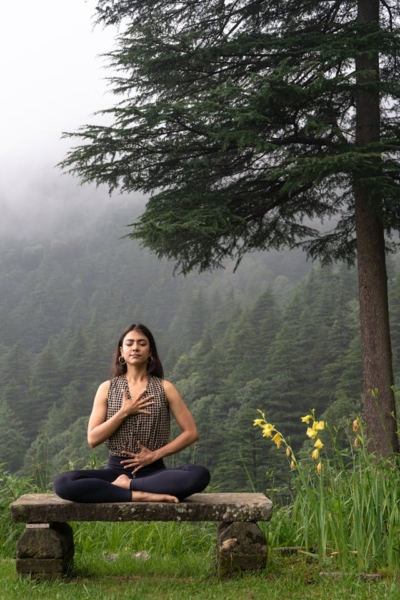
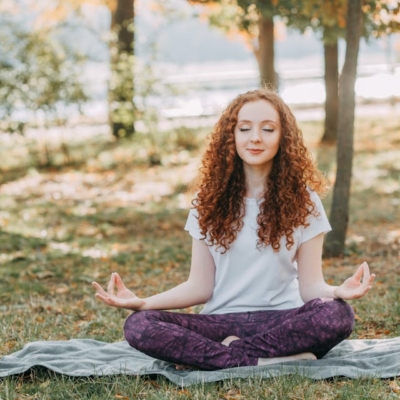
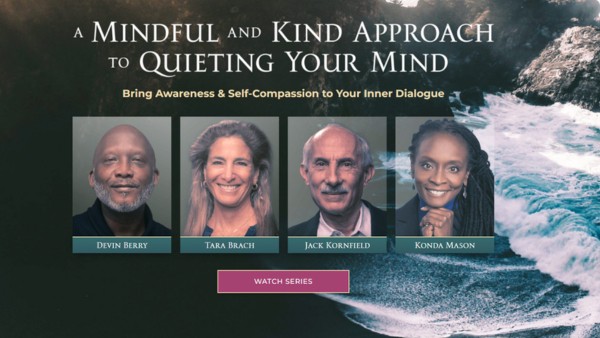




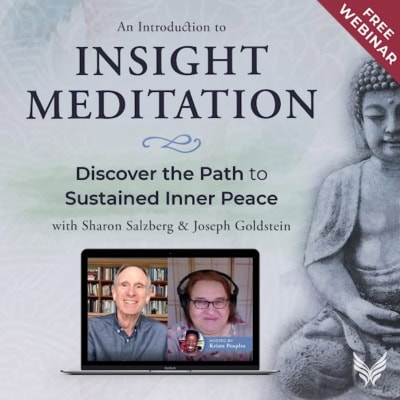
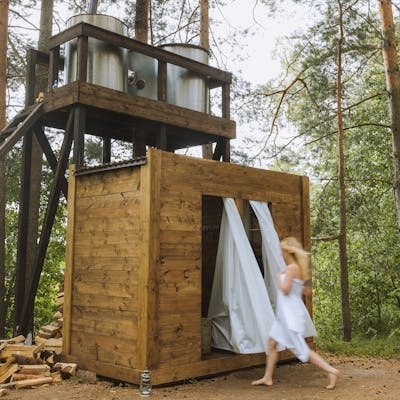
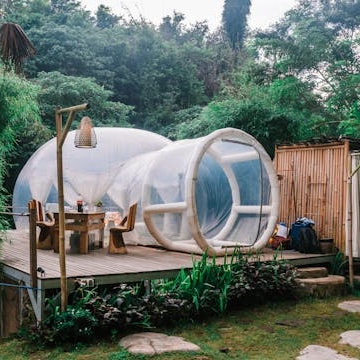
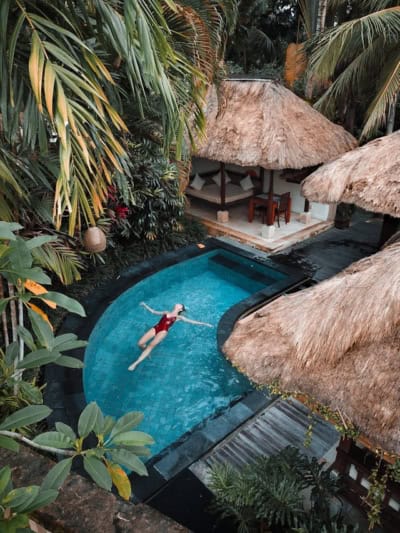
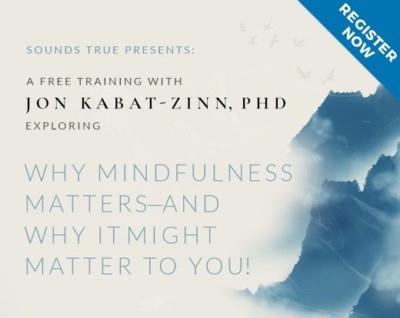
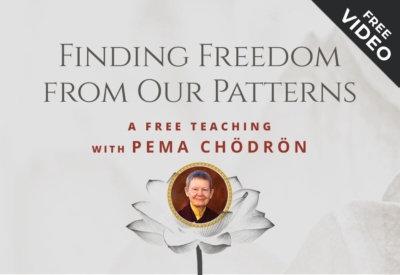
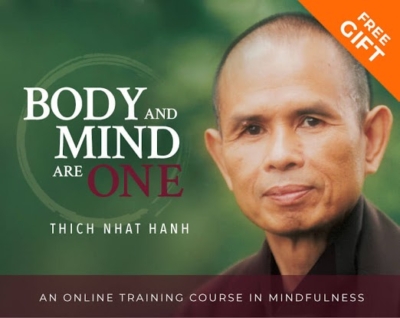







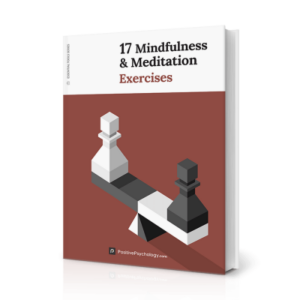

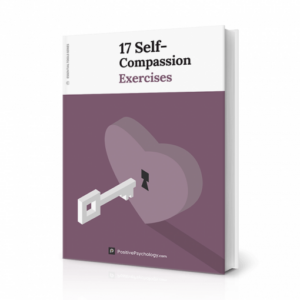
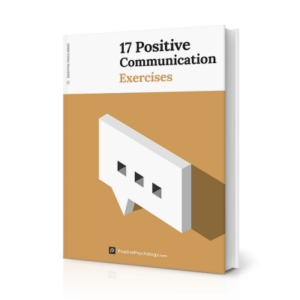





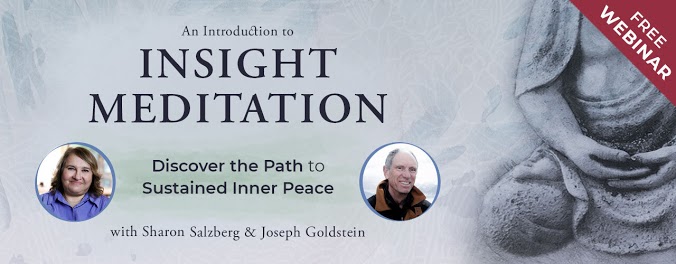
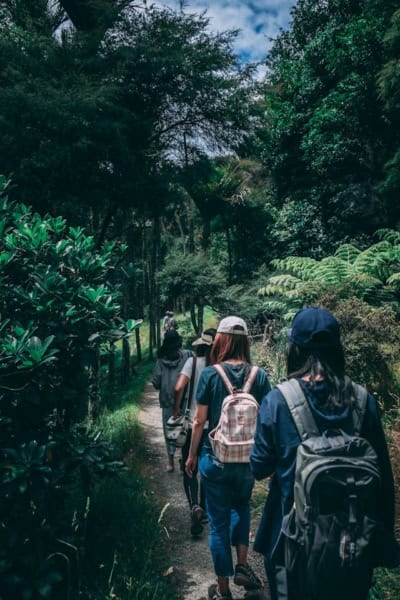

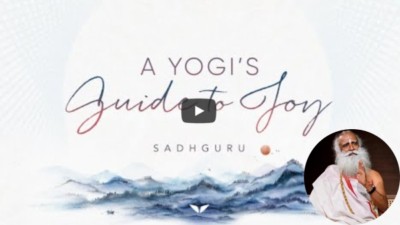

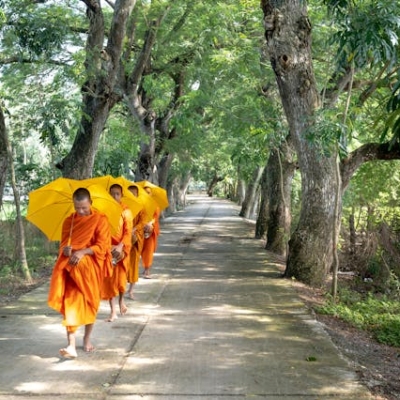

Leave a Reply